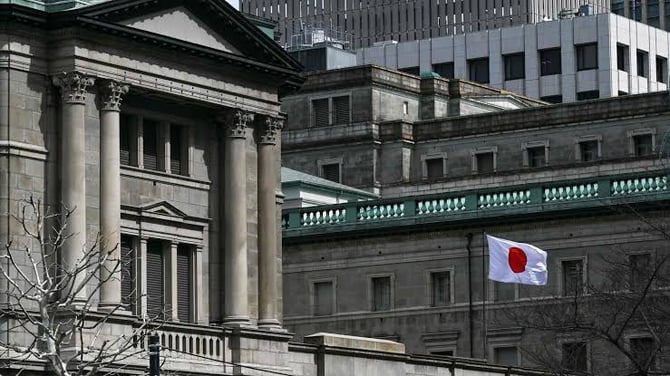Japan Finally Ends Negative Interest Rate Policy

In a monumental shift in monetary strategy, Japan has bid farewell to its negative interest rate policy, a move signaling the end of an aggressive monetary easing era aimed at combating chronic deflation.
This departure from a policy set in place to stimulate economic growth marks Japan's first interest rate increase in 17 years, with the Bank of Japan (BOJ) adjusting its short-term interest rate to roughly zero to 0.1% from the previous minus 0.1%.
This decision is a response to moderate economic recovery, bolstered by a solidifying relationship between wages and prices, indicating a move towards financial normalization.
Japan has struggled with deflation and stagnant economic growth since the late 1990s, employing both traditional and novel monetary policies to incite price increases.
These efforts included maintaining zero or negative interest rates alongside substantial asset purchases. However, recent developments, including notable wage hikes from leading unions and corporations such as Toyota, have increased the pressure on the BOJ to reconsider its long-standing negative interest rate policy (NIRP).
What Does This Mean for Me?
The BOJ's decision also includes the discontinuation of its yield curve control (YCC) policy, initiated in 2016 to stabilize 10-year Japanese government bond yields at approximately 0%, and the halting of exchange-traded fund and real estate investment trust purchases.
Despite these changes, the BOJ intends to maintain accommodating financial conditions for the foreseeable future, committing to the continued purchase of long-term government bonds at similar volumes to support economic growth and manage inflation, which is expected to exceed 2% through fiscal 2024.
More News
.webp)
Japan’s Rate Shift Is Rippling Through Global Bond Markets
1 week ago

China’s Growth Engine Stalls as Consumers and Investors Pull Back
1 week ago

Egypt’s Recovery Gains Traction as Household Pressure Lingers
2 weeks ago

OECD Warns AI and Tariffs Will Test the Global Economy
3 weeks ago

Zero Tariffs, Higher Drug Bills as US and UK Reset Pharma Trade
3 weeks ago

Catastrophe Bonds Go Global as Climate Risk Meets Yield Hunting
4 weeks ago
.webp)
Canada Shields Steel and Lumber Industries From Tariffs
4 weeks ago

Trump Drops Selected Tariffs in Response to Inflation Pressures
1 month ago